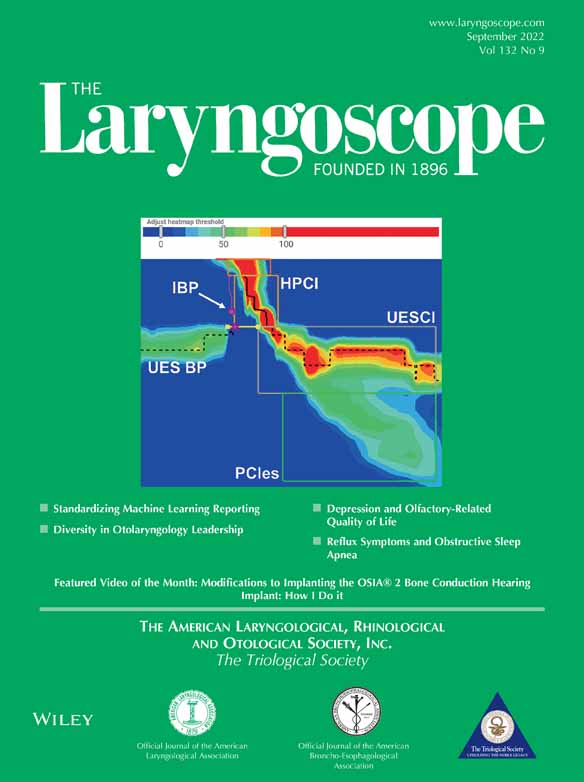Persistent Cough as a Predictor of Poor Responsiveness in Asthma Patients
Editor's Note: This Manuscript was accepted for publication on September 9, 2021.
Presented at the American Broncho-Esophagological Association USA on April 7–8, 2021.
The authors have no funding, financial relationships, or conflicts of interest to disclose. (although this specific study had no funding support, the data base used for evaluation was in part funded through a grant by Thermo-Fisher Scientific)
Abstract
Objectives/Hypothesis
The aim of this study is to establish a correlation between persistent cough (PC) and asthma diagnosis and its severity. We hypothesize that patients with past or current diagnosis of PC may have more severe asthma diagnosis and thus poor responsiveness to treatment.
Study Design
Retrospective chart review.
Methods
A retrospective review was performed on 699 charts that had a positive immunoglobulin E (IgE) allergy blood test between 2014 and 2018, and a positive asthma diagnosis. Patient demographics and asthma severity parameters such as number of clinic and emergency department (ED) visits, asthma treatment, and number of medications were recorded, as well as PC diagnosis. Logistic regressions were used to analyze the likelihood of severe asthma diagnosis in patients with PC.
Results
A total of 55% of patients were treated with oral corticosteroids in the PC group, compared to 41% in those without (P < .001). The mean number of hospitalizations from the ED was higher for patients with PC 0.65 (2.47) versus 0.38 (1.18) P < .05. Patients with asthma and PC, positive to lamb's quarter 2.92 (95% confidence interval [CI] 1.63, 5.22; P < .001), showed a higher likelihood of ED visits. Positivity to cat dander 2.09 (95% CI 1.03, 4.59; P < .05), lamb's quarter 2.96 (95% CI 1.50, 5.79; P < .002), dog dander 3.37 (95% CI 1.54, 8.45; P < .004) showed a higher likelihood of hospitalizations due to asthma.
Conclusion
Patients with PC, especially those with a positive IgE allergy class test to cat dander, dog dander, house dust, Alternaria tenuis, or lamb's quarter can have a more severe asthmatic presentation.
Level of Evidence
3 Laryngoscope, 132:1719–1722, 2022




